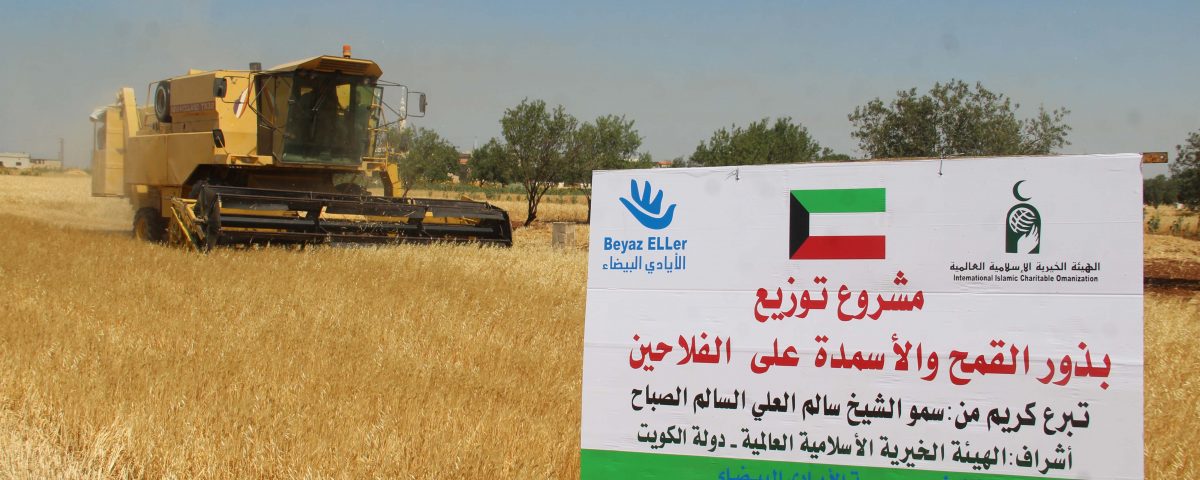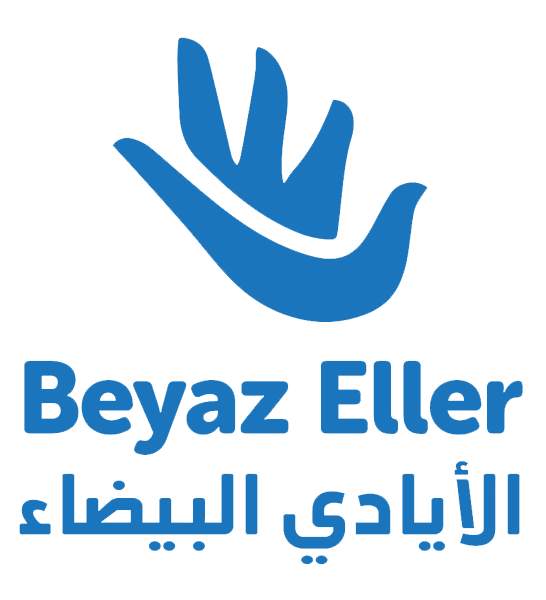Distribution of Seeds and Fertilizers in Besieged Areas

Syria is facing its 7th year at war and under a stifling siege in the targeted villages and areas. This resulted in the destruction of the agricultural land as well as the loss of interest in agriculture as a result of the farmers’ lack of tools, machines, seeds, and fertilizers – all of which are considered essential for agriculture. The result is the scarceness of food for the residents. Agricultural projects are among the most important projects undergone by Beyaz Eller organization. A need to depend on agriculture has arisen due to the difficulty in getting food in, because of the stifling siege and arbitrary firing. Thus, we sought to find alternatives by preparing agricultural land for agriculture and making the utmost use of it. We also strive to aid farmers to return to their land and start growing crops in an attempt to reach food self -sufficiency.
The Financing Partner:
Beyaz Eller is keen on providing food security for the residents that are increasing due to displacement. It worked through funding provided by the ‘International Islamic Charity Organization’ (IICO) to implement the distribution of seeds and fertilizers to reestablish the agricultural infrastructure and reach its prewar status. It seeks to reach food self-sufficiency to face continuous increase in population due to displacement. It seeks to alleviate the effects of the expected famine that would result in a humanitarian catastrophe.
Where Are We Active:
We work in a number of besieged villages, especially those suffering from decline of food resources. After field surveys in Homs, Huma, Idlib and Aleppo, it was found that the siege lead to a decline in agricultural activities and food provisions to residents. The poor agricultural infrastructure in these areas made it impossible for farmers to grow needed crops. There was a dire need to distribute seeds and fertilizers among farmers to encourage them to reach food self-sufficiency in essential crops and to become productive citizens.
Project Beneficiaries:
The project targets farmers suffering from poor economic conditions that prevent them growing their crops. Seeds and fertilizers were distributed among the farmers to provide food for the population and return farmers to their agricultural activities that seized, as measures to agriculturally support the area.
The project aims at growing 1,250 hectares wheat to produce 3,750 tons wheat, and manufacture it into 4,312,500 bread bags. 1,250 farmers with families of 6,250 persons received wheat. 3,750 workers found work during the project– 3 for each hectare .
Project Results:
Economically, it returned food sufficiency to the population at minimal costs. It decreased unemployment by providing jobs for farmers during project implementation.
Socially and psychologically, it helped farmers to regain psychological balance after loss of self-confidence due to the loss of works and occupation.

